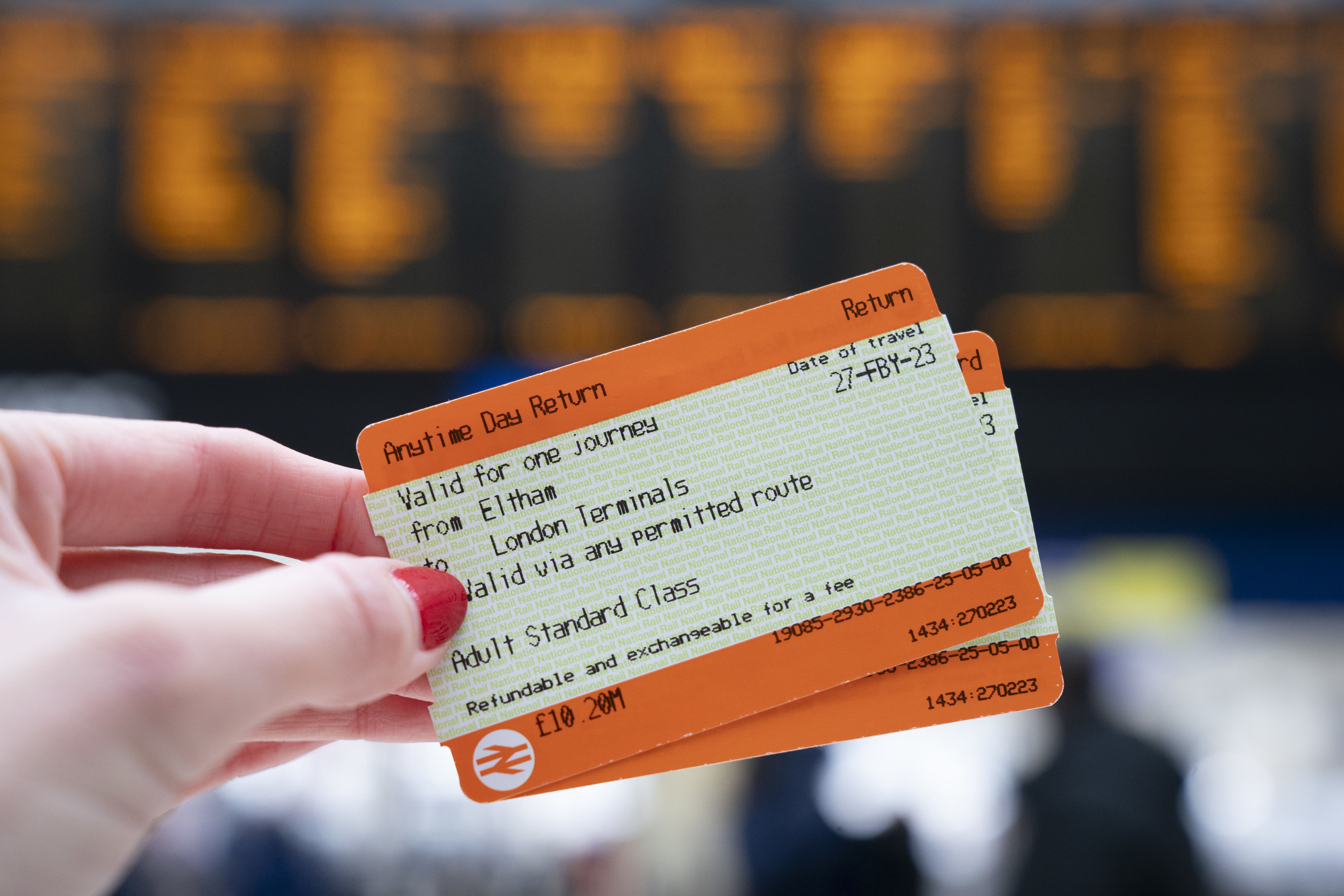Rail fares could shoot up by 8 per cent next year
Highest jump in prices for more than 25 years expected based on the formula used by the government this year

Your support helps us to tell the story
From reproductive rights to climate change to Big Tech, The Independent is on the ground when the story is developing. Whether it's investigating the financials of Elon Musk's pro-Trump PAC or producing our latest documentary, 'The A Word', which shines a light on the American women fighting for reproductive rights, we know how important it is to parse out the facts from the messaging.
At such a critical moment in US history, we need reporters on the ground. Your donation allows us to keep sending journalists to speak to both sides of the story.
The Independent is trusted by Americans across the entire political spectrum. And unlike many other quality news outlets, we choose not to lock Americans out of our reporting and analysis with paywalls. We believe quality journalism should be available to everyone, paid for by those who can afford it.
Your support makes all the difference.Train passengers in England will see fares rise by up to 8 per cent in 2024 if the government sets them using the same formula as this year, according to new figures.
The Department for Transport (DfT) aligned 2023’s cap on fare increases with Britain’s average earnings growth for July 2022, which was 5.9 per cent.
But figures published by the Office for National Statistics this morning show the same measure for July 2023 was 8 per cent.
If next year’s increase followed the same patterns, it would be the highest annual increase since 1996, when the country’s railways were privatised, an analysis of industry data by the PA news agency shows.
The impact of this jump in prices would see an annual season ticket from Woking to London rising by £310 to £4,190, while an off-peak return from Manchester to London would cost £112.20 following an £8.30 hike.
The DfT has previously confirmed that next year’s fare rises will be below the Retail Prices Index (RPI) measure of inflation for July – which was 9 per cent – but has not announced what formula it will use.
Norman Baker, director of external affairs at pressure group Campaign for Better Transport and former Liberal Democrat transport minister, said: “The government has yet to confirm next year’s rail increase, but if it follows the same formula as last year and uses today’s average earnings growth rate, passengers will face eye-watering increases.
“Rather than hammer rail passengers yet again, the government should freeze rail fares – as they have done with fuel duty – until the long-promised ticketing reform takes place.”
A DfT spokesperson said: “Following last year’s biggest ever government intervention to cap rail fare increases well below inflation, we’ll continue to protect passengers from cost-of-living pressures and we will not increase next year’s rail fares by as much as the July RPI figure. Any increase will also be delayed until March 2024, temporarily freezing fares for passengers to travel at a lower price for the entirety of January and February as the government continues with its plan to halve inflation.”
The earnings growth figure used to determine the cap on fare rises in 2023 was the percentage change in average total pay in July 2022 compared with a year earlier.
Almost half of fares on Britain’s railways are regulated by the Westminster, Scottish and Welsh governments. They include season tickets on most commuter journeys, some off-peak return tickets on long-distance routes, and flexible tickets for travel around major cities.
Train operators set rises in unregulated fares, although these are likely to be very close to changes in regulated ticket prices as their decisions are heavily influenced by governments due to contracts introduced due to the coronavirus pandemic.
The Scottish and Welsh governments have not announced their rail fare plans for 2024, while fares in Northern Ireland are set by operator Translink.
Simon Calder, The Independent’s travel correspondent, said: “As the rail industry and ministers know full well, it matters little whether fares rise across the board in line with price inflation or wage rises: there is a fundamental need for ticket reform. Simplifying a completely dysfunctional fares ‘system’ so that passengers can buy reasonably priced single-leg tickets will see many fares cut, while some others rise sharply.
“Everyone connected with the railway knows reform is way overdue, and comprises the single best way for rail to attract new customers. But the government chose not to seize the opportunity presented by the Covid pandemic to dismantle the post-privatisation tangle of anomalous fares.
“Whether the chosen figure is price inflation at 7.8 per cent or wage increases at 8.5 per cent, the one certainty is that rescuing rail from a spiral of decline will be even further away.”
Additional reporting by PA
Join our commenting forum
Join thought-provoking conversations, follow other Independent readers and see their replies
Comments